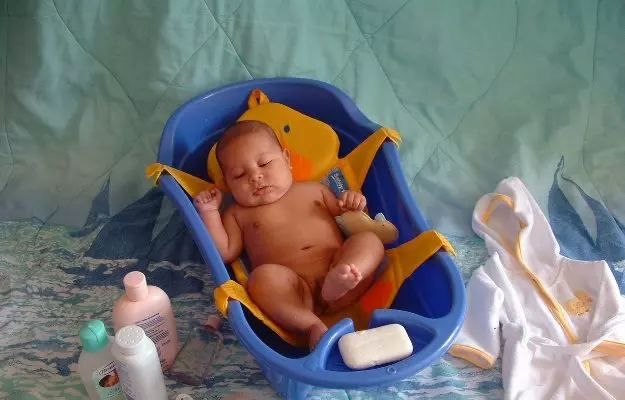Baby powders are a type of cosmetic products that are primarily used for diaper rash prevention in infants and toddlers. They absorb all the excess moisture on your baby’s skin and keep them comfortable throughout the day. But this common product that most new moms are so fond of is made from talc, a mineral compound that has been found to be potentially hazardous to kids as suggested by the American Academy of Pediatrics. Read on to know more:
Harmful effects of using baby powder
Talcum powder or simply talc is what provides the soft slippery consistency to baby powders. It is also said to have a small particle size that makes it an excellent absorbent. However, this same small size could elicit life-threatening conditions for your baby.
According to the American Cancer Society, prolonged exposure to talc can cause various respiratory problems in infants. Inhaling the tiny particles of talc can lead to lung irritation and inflammation in lungs.
A type of lung disease called pulmonary talcosis is a rare disorder caused by continued inhalation or ingestion of talc. The disorder involves inflammation, chronic cough and difficulty breathing. This is because baby powder, consisting mainly of talc powder, is insoluble and, if inhaled in large amounts, dries the tracheobronchial mucous membrane, preventing normal ciliary function. The small air passages then fill with retained mucus, leading to congestion, breathing difficulties and even death.
A report published in the British Medical Journal describes a 12-week-old baby who inhaled and ingested baby powder accidentally spilt on his face during a diaper change and developed severe respiratory difficulties. He was admitted to the hospital as his condition deteriorated and he suffered respiratory arrest.
The Center for Disease Control and Prevention, and the Occupational Safety and Health Administration also report that long term use and repeated inhalation of talcum powder may have severe effects on lungs and respiratory health. In fact, the European Union has put a ban on the use of talc and talc-based products considering them unsafe for use.
Most talcum-based baby powders also contain another ingredient known as asbestos and hence have been categorised as potentially carcinogenic by the International Agency for Research on Cancer (IARC), a division of the World Health Organization (WHO).
Though the effects have not been confirmed yet, several lawsuits have been filed against baby powder manufacturing giants in the past few decades by women who claim of getting ovarian cancer by regular use of these talcs.
Choosing the right option
It is important to do a lot of research before buying a particular brand or type of baby powder. When in doubt read the labels and avoid the use of talc-based powders altogether. Stick to a reputed brand as they assure the type and quality of ingredient in their products. If possible, switch to corn starch or arrowroot based baby powders. These powders are as effective in relieving skin irritation and have a large particle size that cannot enter your baby's respiratory tract easily.
Alternatively, you can make your own diaper creams from coconut oil and shea butter. Not only this assures comfort for your baby but handpicking ingredients ascertains that they are safe to use in the long run. Magnesium oil is another safe alternative and the use of baby powder can be eliminated entirely if you change your baby’s diapers at regular intervals.
Safe way to use baby powder
No matter if you are using a talc-based or a corn starch based powder for the routine care of your baby, there is a trick to apply it so as to avoid health problems both for you and your baby. Here is the right way to apply baby powder to your child:
- Take some powder in your palms and gently pat a light layer on the baby’s skin around the genitals and on legs instead of applying directly on genitals.
- Make sure to rub the powder between your palms before applying it to the baby so as to avoid getting it in your baby’s eyes.
- Keep baby powder away from your face and your child’s face to reduce the risk of inhalation.
- Clean any residual powder that accumulates in the skin folds of your baby with a soft cloth to avoid skin infections.












